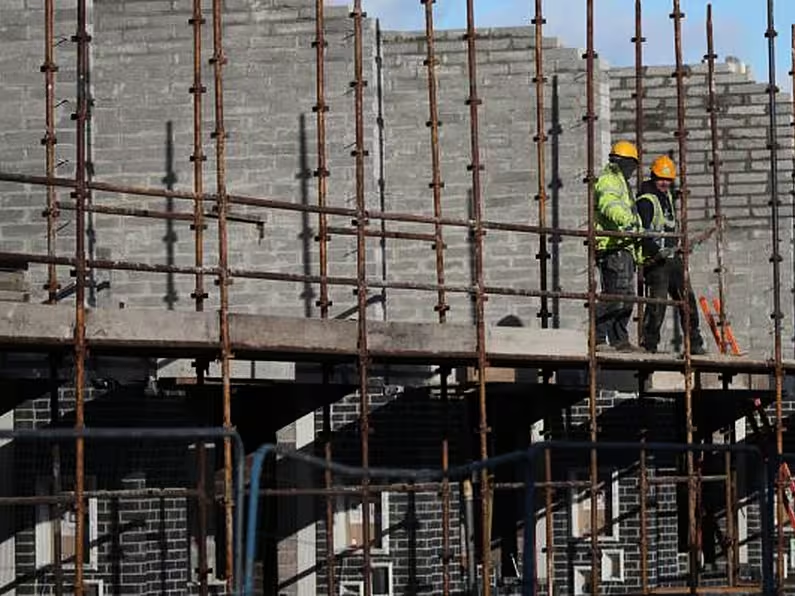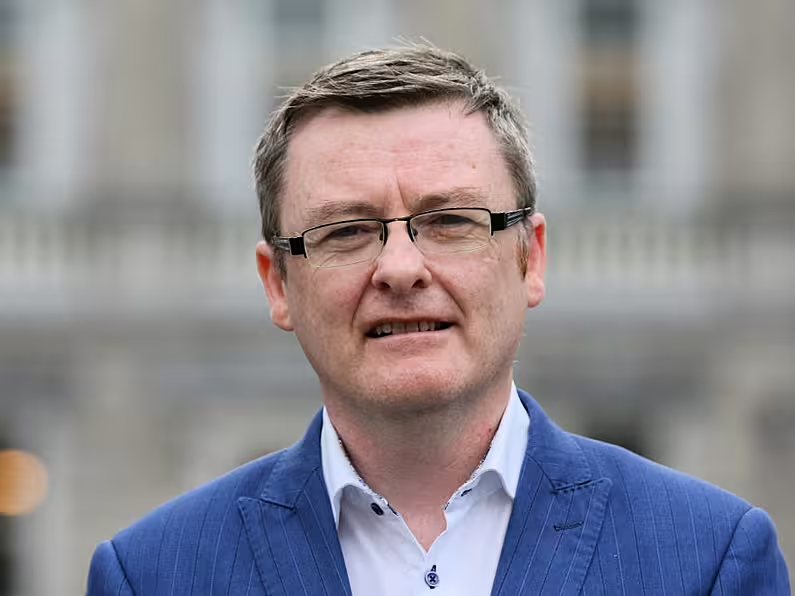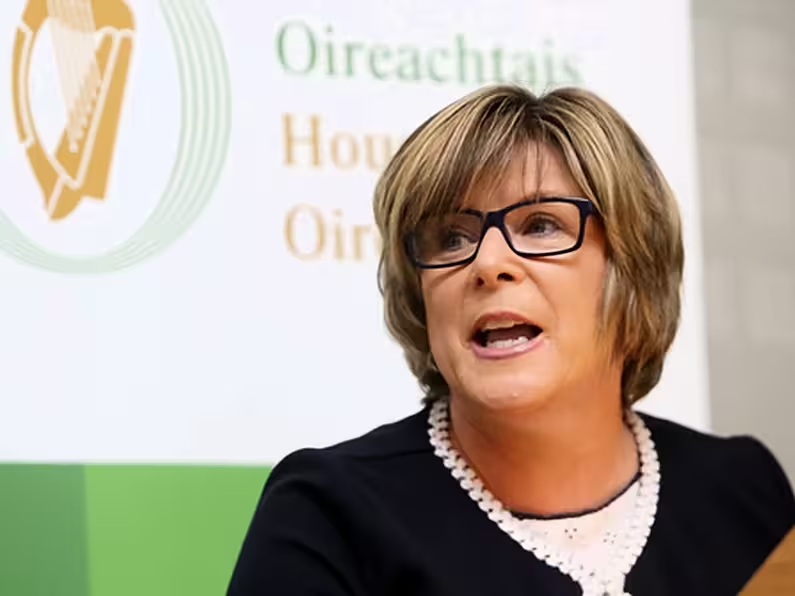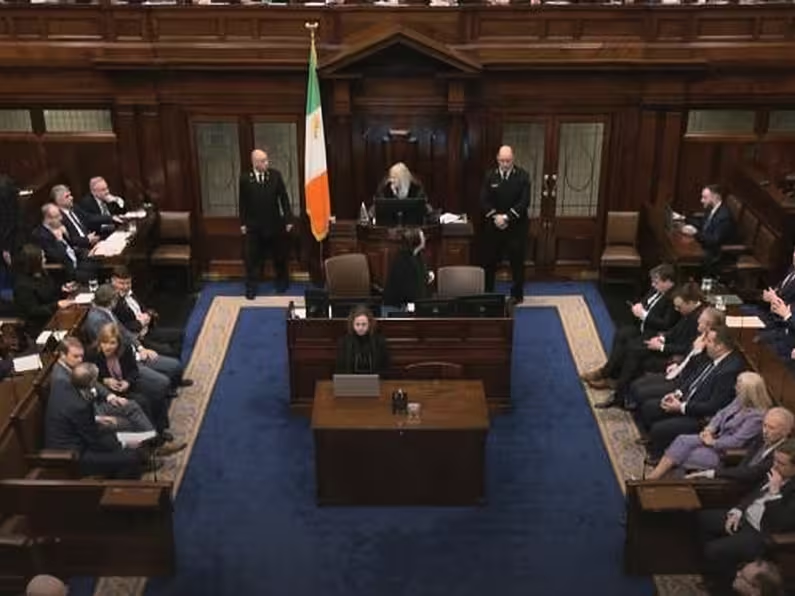The Government has launched its flagship programme to tackle the housing crisis, pledging to end homelessness by 2030.
In what is described as the largest ever housing budget in the history of the State, the Housing for All plan aims to build 33,000 homes every year for the public and private sector.
Taoiseach Micheál Martin said the plan is unprecedented “in our country’s history, in terms of its scope, its scale and its ambition”.
Mr Martin said it represents a direct and radical intervention in the housing market by the State.
The plan, unveiled on Thursday afternoon by the Government, aims to address challenges facing first-time buyers, renters, low income households and people experiencing homelessness.
Read more: What's in the Housing for All plan and how will it help people find homes?
The strategy states that Ireland needs an average of 33,000 homes constructed every year until 2030 to meet targets set out for additional households.
The plan includes the aim of building 90,000 social houses, 36,000 affordable homes, around 18,000 cost rental homes, and 164,000 private ownership and private rental homes by 2030.
The project has more than €20 billion in funding through the Exchequer, the Land Development Agency (LDA) and the Housing Finance Agency over the next five years.
The Taoiseach said that as part of the strategy a Housing for All delivery group will be established. It will be chaired by the Department of the Taoiseach and which will involve all departments.
Mr Martin promised transparency and regular updates to the plan’s progress. “There is nowhere to hide,” he said.
“We have come up to with a strategy that is equal to the challenge we face.”
'Radical' plan
Tánaiste Leo Varadkar described the housing plan as “radical”.
The Fine Gael leader said ministers aim to build “possibly” the highest number of social homes in the State’s history.
“This document is a radical new departure in housing policy in Ireland, both in terms of content and scale, but it also builds on the progress that we made in recent years,” Mr Varadkar said.
“We have now a rent freeze in real terms, building on the rent pressure zones. We have the Rebuilding Ireland Home Loan, which is now going to be extended and expanded and made more attractive, helping more people to get a mortgage that they can afford.
“We have Help To Buy, which gives people tax back to go towards their deposits. Housing First is going to be scaled up to help reduce homelessness. The social housing programme is going to be scaled up even more.
“Not that long ago, in 2016 we only built about 600 social houses in the State, that went up to 6,000 just before the pandemic, and we’re now planning 9,000 next year, possibly the highest in the history of the State.”
'Most ambitious' plan
Minister for Housing Darragh O’Brien said: “It is only by taking measures across all aspects of our housing system that we can begin to improve the situation of all our citizens.”
He described it as the “most ambitious housing plan in the history of our State”.
“It is the largest State-building plan in our history.” He described it is a “fully-funded” plan that would involve all parts of Government.
“I believe in homeownership and this plan supports it,” he said. “We’re empowering our local authorities to get back building again.”
The success of the plan will be crucial for the future fortunes of the three Coalition parties.
The Cabinet provided the final sign-off on the plan earlier on Thursday before Minister for Housing Darragh O’Brien formally launched it alongside Taoiseach Micheál Martin, Tánaiste Leo Varadkar and Green Party leader Eamon Ryan.
Opposition criticism
Sinn Féin president Mary Lou McDonald criticised the plan, saying it is not the solution the country needs.
“The big question is this – has it been worth the long wait?” she said. “Sadly, this answer is no. It won’t ensure that houses are affordable for ordinary workers, it won’t tackle extortionate rents, it won’t end the scandalous housing waiting lists.
“This plan is not the solution or the change that our people want or need. In fact, it is a blueprint for more of the same. The same failed policies that created this crisis in the first place.
“The same broken Fianna Fail-Fine Gael policies that put the interests of wealthy developers, of international investment funds and big landlords ahead of the housing needs of ordinary families and workers.
“What a lack of ambition and wasted opportunity.”
Sinn Féin housing spokesman Eoin Ó Broin said he had a sense of “déjà vu” as he was listening to details contained in the Housing for All plan.
“All of the claims of the biggest housebuilding programme in the history of the State, and the largest housing budget were made both by Simon Coveney and then Eoghan Murphy during the course of Rebuilding Ireland,” the Dublin TD said.
Labour housing spokesperson Rebecca Moynihan said the Housing for All strategy was heavy on aspiration but lacks ambition on State-led delivery. She said it required detailed study and that implementation will be key.
Industry response
James Benson, director of the Irish Home Builders Association, welcomed the plan. “We hope [the plan] goes some way towards meeting the challenges we currently face in terms of supply and affordability.
“The numbers contained within the plan are ambitious with 33,000 homes set to be delivered per annum up to 2030. Our members will be working hard to supply these much-needed homes however it is important that issues such as planning and infrastructure, which are impeding delivery, are also tackled.”
The Irish Planning Institute (IPI) also tentatively welcomed the Housing for All Strategy.
Dr Conor Norton, president of the IPI, said: “Overall we feel that the strategy announced by Government today represents a welcome shift in public policy towards the delivery of housing for our citizens.
“As planners we emphasise that delivery of housing must be part of a larger placemaking approach to development that is place-based and plan-led”.











